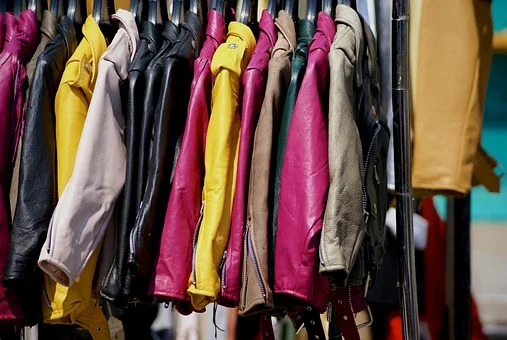The vegan lifestyle is about more than just changing your diet to a plant-based one; it involves changing your clothing as well. Vegans believe that normal clothing is manufactured using a cruel process that goes against their principles, which is why manufacturers and fashion designers have started making vegan clothes to meet their needs. Vegan fashion is all about the materials and fabrics that go through a cruelty-free manufacturing process to ensure that they meet the standards of veganism. If you’re a vegan and you don’t know how to get the right type of clothes, then read on for some expert fashion tips.
Beware of Vintage Clothes
Vintage clothes are old and most likely have animal substances, details, and trims, making them a bad choice for people who believe in veganism. When wool sweaters, coats, and felt hats are vintage, they will most likely be manufactured from animals. Luckily, many online retailers are providing modern clothing with a vintage style but without the practices that involve animals. Check the buttons used in vintage clothing because they may be made out of horns, shells, or tusks. This includes buttons in purses, shirts, and jewelry. Being careful with your clothes will ensure that you’re wearing cruelty-free garments.
Choose the Right Materials
Familiarizing yourself with cruelty-free materials will help you pick out the right type of vegan clothes. Cotton is the best and safest material for this lifestyle, but not every piece of clothing can be made out of cotton. The UK has millions of people who believe in veganism, but how can they tell which material is safe? The faux leather used in making these stylish vegan dress shoes is a good example of safe materials. When it comes to shoes, anything made out of polyurethane, mushroom leather, bio-fabricated leather, micro-suede, ultra-suede, or even pineapple leather is safe to buy. Avoid buying shoes made out of pure leather, suede, snakeskin, alligator skin, and kangaroo skin.
Other pieces of clothing like jackets or coats must be made out of thermo-lite, polyester fleece, faux fur, hemp, and waxed canvas. The materials to avoid are pure wool, fur, fleece, and shearling. A nice blouse should never be made out of silk, but a blouse made out of bamboo, hemp, cotton, polyester, lyocell, viscose, or modal is appropriate. Suits must be made out of rayon, Tencel, cotton, polyester, viscose, and modal. Never try to buy suits made out of cashmere, fur trim, silk, or wool. Scarves and bandanas are safe when they’re made from polyester fleece, satin, cotton, acrylic, and Tencel. Anything made out of alpaca, mohair, angora wool, camel skin or hair, mink, and shearling must be avoided.
Read Labels

Overlooking the labels is a big mistake because reading them can give you clothing care instructions on how to maintain your clothes. Labels are so important because they show you the material, the origin, and who designed/manufactured them. The composition of the garments you’re about to purchase is crucial too because the manufacturing process may have used animal-derived glue that must be avoided. Labels can be the best way to make sure if the product has any animal by-product that wasn’t easy to feel by touch. Save yourself the time, effort, and money by checking the labels before any purchases. Returns may take a while and there is no guarantee that you will get a full refund.
Research and Pick a Reliable Source
Vegan clothing is gaining popularity, but it’s still not widespread and only a few suppliers can be serving your region. Consider researching for local vegan-friendly suppliers or manufacturers that can provide you with what you need. If you find a reliable brand that has a good reputation, rebuilding your entire wardrobe to match your beliefs and lifestyle will be easier. Check online reviews, compare prices, and ask if they have a VIP membership subscription plan for discounted prices.
Checking the outfits and feeling them thoroughly can be a hectic and tedious process just to tell if it has animal-sourced materials or not. Synthetic fur or leather will have visible stitching sewn in straight rows and will feel like a shaggy carpet. These types of clothes are quite affordable, whether you’re looking for shoes, sweaters, suits, blouses, or jackets. Cruelty-free clothing that doesn’t have animal by-products helps vegans express their principles, allowing them to display their ethical stance and use fashion to spark inspiring conversation and communicate their message. The tips listed above can make things easier for people who follow this lifestyle, helping them show off fashionable clothing that promotes veganism.

